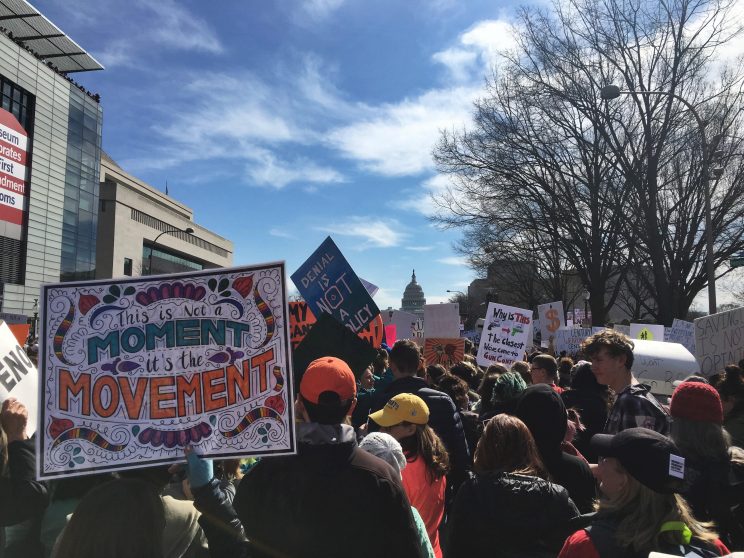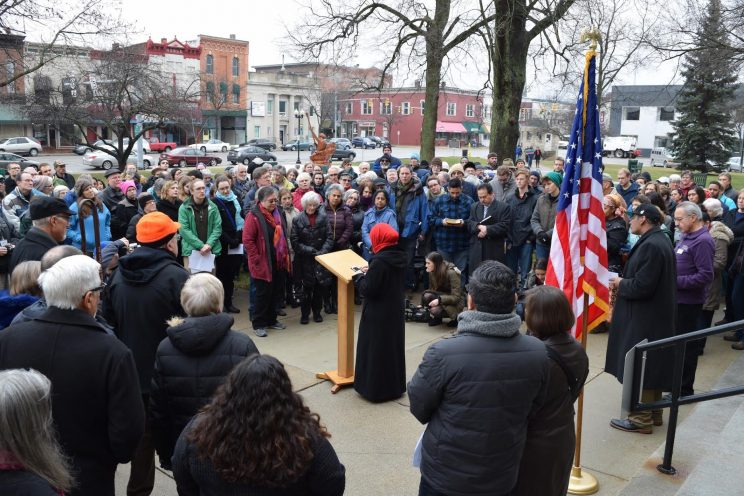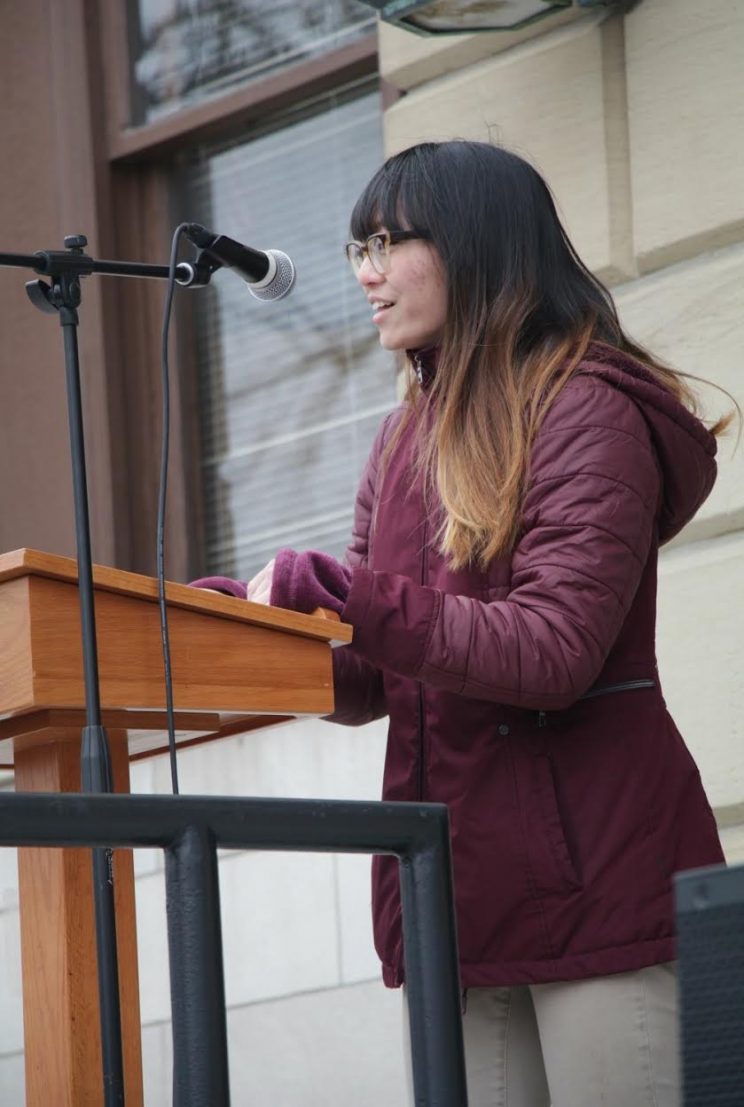Grads Say Political Activism is Not a Part of Hesston’s Culture
By Mackenzie Miller – Horizon Editor-in-Chief

This year we’ve marched for justice.
From the Women’s March to the first “March for Our Lives” to the National Walkout, the spring semester has ushered in a new era of political and social engagement as students around the nation to leave classes, make signs and use their voices for change.
But through all this, the Hesston College campus stood mostly quiet.
On National Walkout Day, only a dozen students along with President Joe Manickam and several faculty gathered in the center of campus to join in honoring the 17 victims of the Marjory Stoneman Douglas high school shooting as well as protesting lack of gun control. The silence then concluded, each student going about their daily schedule.
But sister college campuses painted a slightly different picture that day.
“My experience was surreal,” Goshen College junior Olivia Copsey said. “I was amazed by the amazing youth that stood by me outdoors to listen to the names of the students killed in Parkland. I was so proud to call Goshen my college because it has people who are willing to come outside in the freezing snow and stand up for why they believe in.”
A majority of the campus showed up for this event. And at Bethel College the administration wrote a letter to students saying that no student would be penalized for participating and that the college supports those individuals who choose to fight injustice through nonviolence.
College freshman are said to be more politically engaged than they have been in decades. But as former Hesston College students move on to sister schools, they say there’s a stark difference between the social and political culture at Hesston versus where they are now.

For senior Emily Kauffman, Goshen College called her to action in ways she didn’t feel were present during her time at Hesston.
“Social activism is in the air here at Goshen College,” Kauffman said. “People breathe it on the daily. I felt convicted early on that if I was being silent about injustice, I was not welcome. Once I realized that this feeling of not feeling welcome was felt by others on campus because of the color of their skin, their sexuality, their religion I channeled that connection into becoming more aware and engaged socially and politically.”
Eastern Mennonite University junior Jonah Short-Miller thinks much of this difference can be attributed to the age difference between a junior college and a four-year university.
“I think that the presence of juniors and seniors at EMU makes for a more politically engaged environment,” Short-Miller said. “The freshmen and sophomores here seem to be less politically active, and given that Hesston only has underclassmen, this could lend itself to lower levels of engagement.”
Short-Miller recently traveled to Washington, D.C. for the March For Our Lives movement.
“Hesston College is in a small rural town in central Kansas, whereas EMU is in an East Coast city with an enormous university, a mere two hours from the nation’s capital,” Short-Miller said. “So in my experience, EMU is more politically active.”
However 2015 graduate Quinn Kathrineberg recalls all the opportunities she had at Hesston to spark her interest in social and political engagement.
“I was on the Campus Stewardship Council which taught me about environmental justice,” Kathrineberg said. “I also served on the Inclusion and Diversity Council where I worked with the issues of cultural, religious, and ethnic diversity in relation to the Hesston College campus and beyond.”
You definitely have to seek out those opportunities for yourself, Kauffman added.
With the inauguration of President Joe Manickam, the campus continues to “Start Here” and “Go Global.” English faculty Donovan Tann has noticed a clearer sense of intentionality.
“Campus programming, such as the workshop on Martin Luther King, Jr. Day, has been more intentional in drawing our attention to pressing social issues with the recognition that our campus’ commitment to bring many cultures and perspectives together is itself a statement about how we should live together as a polis, or gathered community,” Tann said. “I hope that students come to recognize that avoiding political topics entirely (and the discomfort that they can bring) often leaves things exactly as they are.”

Each student decides for themselves what activism looks like.
“Students have to believe that their voices matter and to act on their beliefs — leading an important discussion or calling their representatives, for example,” Kathrineberg said. “I don’t think there is an extreme difference between politically engaged students at EMU and at HC, but exposure definitely matters.”
Graduates such as Olivia Copsey find themselves more engaged than ever. Copsey recently spoke at Goshen’s “March for Our Lives” rally.
Hesston was still the place where she got to know people and where those tough conversations started, Copsey said.
“Ultimately, being socially and politically aware is about relationship building,” Kauffman said. “That is what the community of HC gave me the deepest most beautiful sense of.”

